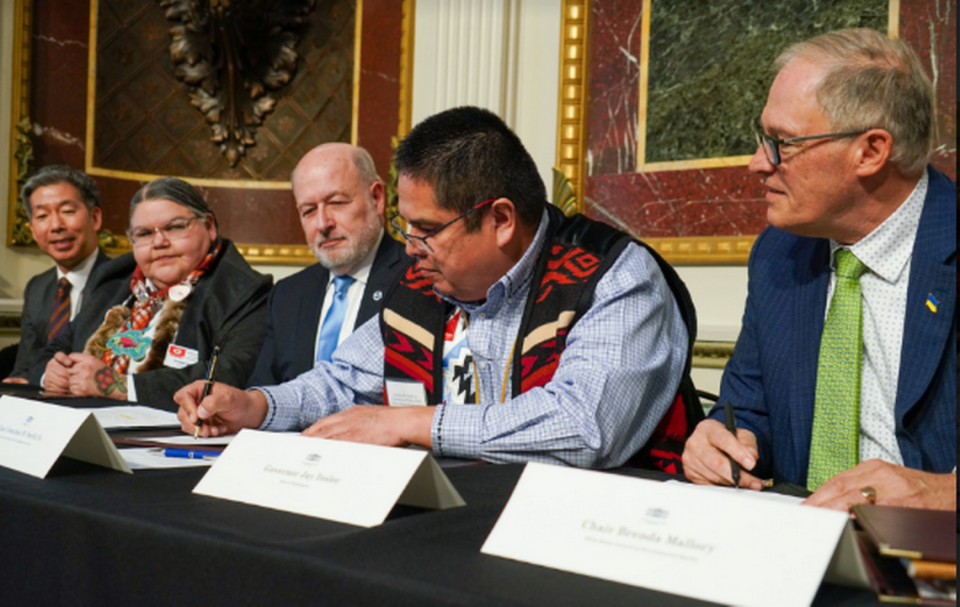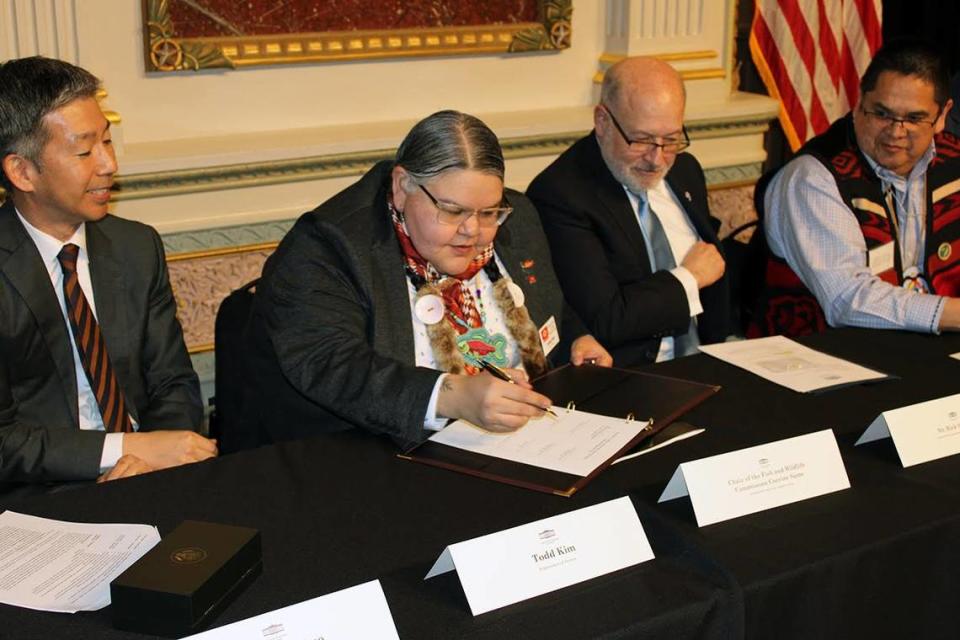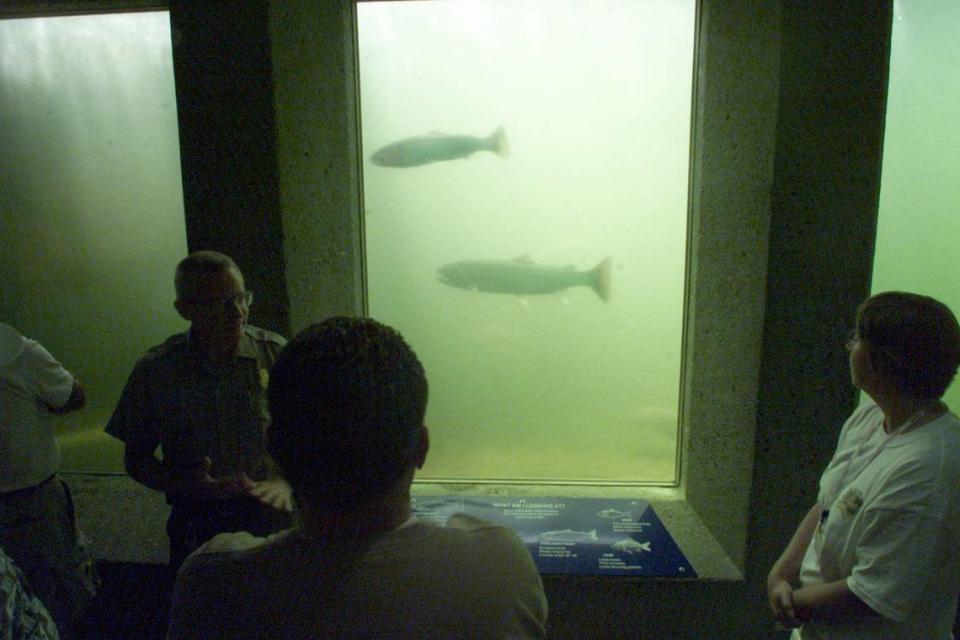White House ceremony launches $1 billion Snake River dams, salmon settlement
- Oops!Something went wrong.Please try again later.
An agreement that has been called a roadmap to breaching the four Snake River dams in Eastern Washington was signed in a Biden White House ceremony Friday, with tribal leaders and the governors of Oregon and Washington in attendance.
The agreement made public in December lays the groundwork for the federal government to work with four Northwest tribes and the states of Oregon and Washington to protect and restore salmon, steelhead and other native fish to the Columbia River Basin, including the Snake River.

“We will not allow extinction to be an option for the salmon, nor for us,” said Chairman Shannon Wheeler of the Nez Perce Tribe. “The United States is bound to salmon and to us by treaty, where we reserved all of our fisheries.”
The agreement was hashed out by the federal government behind closed doors to temporarily halt a long-running lawsuit over the Columbia River hydrosystem, and particularly the lower Snake River dams, as salmon and steelhead runs have dropped far below levels when treaties were signed in 1855.
“Since time immemorial, the strength of the Yakama Nation and its people have come from Nch’í Wána — the Columbia River — and from the fish, game, roots and berries it nourishes,” said Chairman Gerald Lewis of the Yakama Nation.

Its fishers have empty nets and its homes have empty tables, due to the impact of human development on the Columbia River system, he said. More clean energy is needed, but it needs to be developed in a way that is socially just, he said.
“My heart is big today,” said Corinne Sams of the board of the Confederated Tribes of the Umatilla Indian Reservation and chairperson of Columbia River Inter-Tribal Fish Commission.
“We are Wykanish-Pum, the Salmon People, and in our creation story Salmon gave up himself so we can have nourishment. And in return, we promised to speak on behalf of our resources,” Sams said at the ceremony.
Since the federal dams were constructed, 13 salmon and steelhead stocks have been listed as threatened and endangered.
But the Umatillas and others at the ceremony also discussed the complexity of the issues surrounding historic salmon declines, including climate change and population growth.
Under the agreement the Biden administration will spend more than $1 billion, including $300 million from the Bonneville Power Administration over a decade to restore native fish and their habitats.
The Department of Energy will help develop tribally sponsored clean energy infrastructure to help replace hydropower production should the four dams — from Ice Harbor near Pasco to Lower Granite near Lewiston, Idaho — be torn down.
Studies will be conducted by the federal government or with federal funding on how the services now provided by the dams could be replaced, including the barging of farm products and other goods, irrigation, recreation and electricity production.

“President Biden understands the Columbia River is the lifeblood of the Pacific Northwest for its culture, for its economy and for its people,” said Brenda Mallory, chairperson of the White House Council on Environmental Quality.
In the federal government it is “all hands on deck” to restore the wild salmon and steelhead in the Columbia River Basin, she said.
“The historic agreement is charting a new and exciting path to restore the river, provide for clean energy and live up to our responsibilities to tribal nations,” she said.
The six governments negotiating the agreement with the federal government included Washington state, Oregon state and the Yakama Nation, the Umatilla Tribes, the Nez Perce Tribe and the Warm Springs Tribes.

